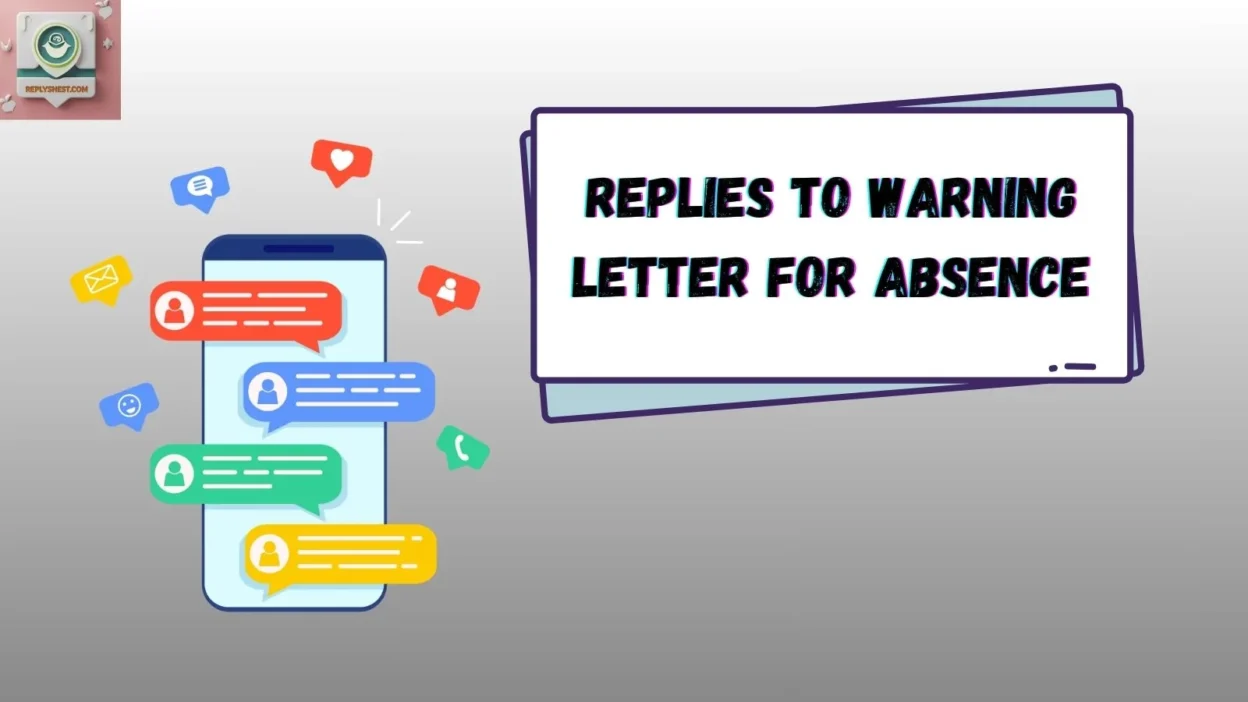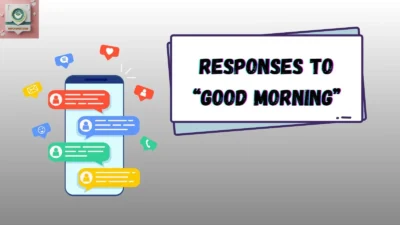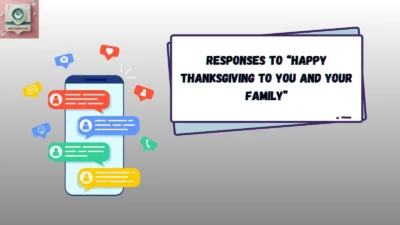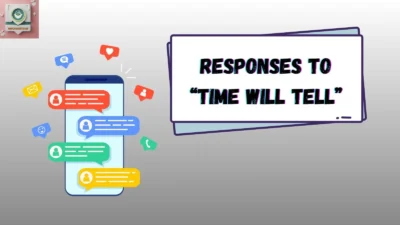When you receive a warning letter for absence, it can feel unsettling — a mix of guilt, anxiety, and the urge to explain yourself clearly yet respectfully. The good news? There’s always a way to respond professionally, empathetically, and thoughtfully while maintaining your dignity and integrity at work. Replies to Warning Letter for Absence.
When you receive a formal warning letter from your manager or HR about your absence, the key is to respond with professionalism, sincerity, and accountability. I remember once facing a similar situation when an unexpected medical emergency disrupted my schedule. I wrote an apologetic yet positive response that acknowledged the reason, expressed regret, and gave assurance that such unplanned leave wouldn’t happen again.
A clear and respectful tone, combined with clarity and understanding, helped me rebuild trust with my employer. In such cases, a genuine apology, acknowledging the mistake, and explaining the circumstances show that you are committed to improvement. Always include important information like your name, employee ID, and department, ensuring compliance with workplace policies.
A strong reply should show that you’ve noted the concerns raised and are proactive in addressing them. Express gratitude, offer assurance, and show your dedication to your job and team. Mention steps to avoid future absences, like better planning, timely communication, or preventive measures against recurring issues. If lateness or traffic were involved, provide a brief explanation without making excuses.
Keep your tone considerate and harmonious, ensuring it reflects your commitment to a cohesive work environment. Such effective replies not only maintain a professional relationship but also show your growth, maturity, and dedication to fostering positive communication in the workplace.
1. “I sincerely apologize for my unplanned absence.”
A direct yet humble response that shows ownership and regret without being defensive.
Best Use:
When your absence was unexpected but genuine (e.g., illness, emergency).
Not to Use:
If you were absent intentionally or without notice.
Other Ways to Say:
- “I’m truly sorry for missing work unexpectedly.”
- “I regret not informing you sooner about my situation.”
Example:
“I sincerely apologize for my unplanned absence due to a medical emergency. It wasn’t my intention to disrupt workflow, and I’ll ensure proper communication in the future.”
2. “Thank you for bringing this matter to my attention.”
This shows maturity and willingness to learn, not resentment.
Best Use:
When you want to express professionalism and appreciation for feedback.
Not to Use:
If the tone of the warning letter is very strict or disciplinary.
Other Ways to Say:
- “I appreciate your understanding and feedback.”
- “I value your concern and take this seriously.”
Example:
“Thank you for bringing this matter to my attention. I’ll make sure to manage my attendance better and keep my supervisor informed promptly.”
3. “I understand the importance of regular attendance.”
Acknowledging the rule shows you respect company policy.
Best Use:
When you’re emphasizing awareness and accountability.
Not to Use:
If you’re planning to dispute the warning.
Other Ways to Say:
- “I completely understand the impact of my absence.”
- “I recognize the importance of being consistent.”
Example:
“I understand the importance of regular attendance and assure you that I’ll be more mindful in maintaining punctuality going forward.”
4. “I had a valid reason for my absence, and I apologize for not communicating sooner.”
Balances explanation and responsibility.
Best Use:
When you missed notifying HR or your supervisor.
Not to Use:
If you already gave prior notice and they’re aware.
Other Ways to Say:
- “I should have informed earlier, and I apologize.”
- “I regret the delay in my communication.”
Example:
“I had a valid reason for my absence, but I failed to communicate it on time. I apologize for any inconvenience caused.”
5. “I assure you this won’t happen again.”
Simple, strong, and sincere — perfect for restoring trust.
Best Use:
When you want to rebuild reliability after a mistake.
Not to Use:
If you can’t guarantee it (e.g., ongoing personal issues).
Other Ways to Say:
- “I’ll ensure better consistency from now on.”
- “This situation won’t repeat.”
Example:
“I assure you this won’t happen again, and I’ll prioritize attendance more seriously moving forward.”
6. “I take full responsibility for my actions.”
Shows humility and integrity — both key in maintaining credibility.
Best Use:
When your absence was avoidable.
Not to Use:
If you have evidence your absence was approved or justified.
Other Ways to Say:
- “I take accountability for the missed days.”
- “I accept the consequences of my mistake.”
Example:
“I take full responsibility for my absence and will work on ensuring this doesn’t affect my performance in the future.”
7. “I appreciate the company’s understanding and patience.”
Expresses gratitude while acknowledging the inconvenience caused.
Best Use:
When your workplace has been lenient or understanding.
Not to Use:
If the warning was harsh or disciplinary in tone.
Other Ways to Say:
- “I’m grateful for your patience.”
- “Thank you for understanding my situation.”
Example:
“I appreciate the company’s understanding and patience while I dealt with unforeseen personal matters.”
8. “My absence was due to unavoidable circumstances.”
A polite, professional phrase when you prefer not to disclose personal details.
Best Use:
When privacy is a concern.
Not to Use:
If HR requested documentation (e.g., medical or official proof).
Other Ways to Say:
- “I faced unexpected personal challenges.”
- “An urgent matter required my attention.”
Example:
“My absence was due to unavoidable circumstances, and I truly regret the inconvenience caused.”
9. “I’ve learned from this experience and will ensure better communication.”
Shows reflection and personal growth — highly valued in professional settings.
Best Use:
When your absence resulted from poor communication.
Not to Use:
If the absence was beyond your control (like hospitalization).
Other Ways to Say:
- “I’ve realized the importance of timely updates.”
- “I’ll improve how I handle communication moving forward.”
Example:
“I’ve learned from this experience and will ensure better communication with my manager next time.”
10. “I’m committed to improving my attendance record.”
A promise of action, not just an apology.
Best Use:
When HR expects a proactive response.
Not to Use:
If you’re planning extended leave soon.
Other Ways to Say:
- “I’ll make sure my attendance improves.”
- “I’m focused on being more consistent.”
Example:
“I’m committed to improving my attendance record and appreciate your understanding as I work on this.”
11. “I regret any inconvenience my absence may have caused.”
Polite and emotionally intelligent — acknowledges others’ impact.
Best Use:
When your absence affected workflow or team progress.
Not to Use:
If your absence was officially approved.
Other Ways to Say:
- “I apologize for any disruption my absence caused.”
- “I understand my absence may have affected operations.”
Example:
“I regret any inconvenience my absence may have caused and will ensure better planning in the future.”
12. “I appreciate the chance to clarify my situation.”
Perfect when your warning letter feels one-sided or misunderstood.
Best Use:
When you need to explain your side respectfully.
Not to Use:
If you already discussed the matter in detail.
Other Ways to Say:
- “Thank you for allowing me to explain.”
- “I’d like to provide more context regarding my absence.”
Example:
“I appreciate the chance to clarify my situation. I was dealing with a sudden family emergency, which I’ll ensure doesn’t disrupt my work again.”
13. “I understand how important reliability is in our team.”
Builds empathy by aligning with company values.
Best Use:
When your absence impacted teamwork or project deadlines.
Not to Use:
If the issue wasn’t team-related.
Other Ways to Say:
- “I know my presence is important to team success.”
- “I understand my absence affected the workflow.”
Example:
“I understand how important reliability is in our team and will make sure I’m present and dependable moving forward.”
14. “Please accept my apology and my assurance of better conduct.”
Formal and respectful — suitable for written HR communication.
Best Use:
When responding officially to HR or senior management.
Not to Use:
In casual or small team communications.
Other Ways to Say:
- “I apologize and promise improvement.”
- “Please accept my regret and assurance of better performance.”
Example:
“Please accept my apology and my assurance of better conduct and communication going forward.”
15. “I’ve taken steps to ensure this won’t repeat.”
Shows practical improvement, not just promises.
Best Use:
When you’ve actually implemented change (like setting alerts, updating HR contacts, etc.).
Not to Use:
If you haven’t yet addressed the root cause.
Other Ways to Say:
- “I’ve made changes to prevent this in the future.”
- “I’ve improved my planning to avoid such absences.”
Example:
“I’ve taken steps to ensure this won’t repeat by updating my leave notifications and planning ahead.”
16. “I value my position and the trust placed in me.”
Appeals to emotional professionalism — great for rebuilding rapport.
Best Use:
When your job or reputation is at stake.
Not to Use:
If your letter needs to be brief and strictly factual.
Other Ways to Say:
- “I truly value being part of this organization.”
- “I respect the trust this company has in me.”
Example:
“I value my position and the trust placed in me and will work to uphold both through consistent attendance.”
17. “I’m grateful for the opportunity to correct my mistake.”
Turns the warning into a growth moment.
Best Use:
When your tone needs to be constructive and positive.
Not to Use:
If the issue is severe or repeated.
Other Ways to Say:
- “I appreciate the chance to improve.”
- “I’ll make sure to use this as a learning experience.”
Example:
“I’m grateful for the opportunity to correct my mistake and ensure my attendance improves.”
18. “I was unwell and couldn’t inform on time.”
Simple, honest, and clear — works when illness was the cause.
Best Use:
When you were sick without prior notice.
Not to Use:
If the reason wasn’t health-related.
Other Ways to Say:
- “I was unwell and unable to communicate.”
- “Health issues kept me from notifying earlier.”
Example:
“I was unwell and couldn’t inform on time. I’ll make sure such delays don’t occur again.”
19. “I understand this affects company operations.”
Shows empathy toward organizational needs.
Best Use:
When your absence disrupted workflow.
Not to Use:
If your role wasn’t directly affected by the absence.
Other Ways to Say:
- “I understand the impact of my absence on work continuity.”
- “I realize my absence may have caused some setbacks.”
Example:
“I understand this affects company operations, and I’ll do my best to be consistently available.”
20. “I’ll ensure all future leaves are properly communicated.”
A promise of better systems and responsibility.
Best Use:
When your absence was due to poor coordination.
Not to Use:
If it was a disciplinary issue beyond communication.
Other Ways to Say:
- “I’ll make sure to follow protocol for future leaves.”
- “I’ll notify HR promptly for any future absences.”
Example:
“I’ll ensure all future leaves are properly communicated to avoid misunderstandings.”
21. “I hope to regain your trust through my consistency.”
Adds an emotional touch — perfect for sensitive HR letters.
Best Use:
When the relationship with management is strained.
Not to Use:
For quick, factual replies.
Other Ways to Say:
- “I’ll earn back your trust with my actions.”
- “Consistency will be my top priority.”
Example:
“I hope to regain your trust through my consistency and dedication in the days ahead.”
22. “I’ve taken note of your feedback seriously.”
Shows attentiveness and respect for HR communication.
Best Use:
For formal letters or disciplinary follow-ups.
Not to Use:
In a casual office environment.
Other Ways to Say:
- “I take your message seriously.”
- “I’ve carefully reviewed your feedback.”
Example:
“I’ve taken note of your feedback seriously and will work to prevent future attendance issues.”
23. “Thank you for understanding my situation.”
Softens tension and builds goodwill.
Best Use:
When HR or your supervisor was patient.
Not to Use:
If the warning was very strict or unsympathetic.
Other Ways to Say:
- “I appreciate your patience and understanding.”
- “Thank you for considering my side.”
Example:
“Thank you for understanding my situation during this difficult time. I appreciate your patience and will ensure proper communication next time.”
24. “I’m willing to discuss this further if needed.”
Shows openness and transparency.
Best Use:
When you want to resolve the issue amicably.
Not to Use:
If HR already closed the matter.
Other Ways to Say:
- “I’m available to discuss this anytime.”
- “I’m open to clarification or further discussion.”
Example:
“I’m willing to discuss this further if needed, to make sure everything is clear and resolved.”
25. “Thank you for giving me the chance to explain.”
Gracious and sincere — ends the letter on a polite note.
Best Use:
When concluding your reply.
Not to Use:
As an opening line.
Other Ways to Say:
- “Thank you for allowing me to clarify.”
- “I appreciate the opportunity to express my side.”
Example:
“Thank you for giving me the chance to explain. I deeply regret my absence and will maintain full attendance moving forward.”
Conclusion
Receiving a warning letter for absence doesn’t mark the end of your career — it’s a chance to show professional maturity, responsibility, and sincerity. The key lies in responding respectfully, taking accountability, and expressing commitment to improvement.
From my own HR experience, the employees who respond thoughtfully often rebuild stronger trust than before. Remember: a well-worded response can turn a formal warning into a story of growth and professionalism.
Editor’s Picks: 10 Smart Replies for “Warning Letter for Absence”
- “I take full responsibility for my absence and assure improvement.” — Balanced and respectful.
- “Thank you for bringing this to my attention; I’ll ensure better attendance.” — Polite and proactive.
- “I was unwell and couldn’t inform earlier — my apologies.” — Honest and empathetic.
- “Please accept my apology and assurance of better conduct.” — Formal and HR-appropriate.
- “I value my position and will prove my reliability.” — Emotionally mature and motivating.
- “I’ve taken steps to ensure this won’t happen again.” — Shows action, not just words.
- “I appreciate your understanding regarding my emergency.” — Gentle yet respectful.
- “I’ve learned from this and will communicate promptly in the future.” — Reflective and growth-oriented.
- “I regret the inconvenience caused to the team.” — Empathetic and team-conscious.
- “I hope to regain your trust through consistent effort.” — Perfect for closing on a sincere note.



